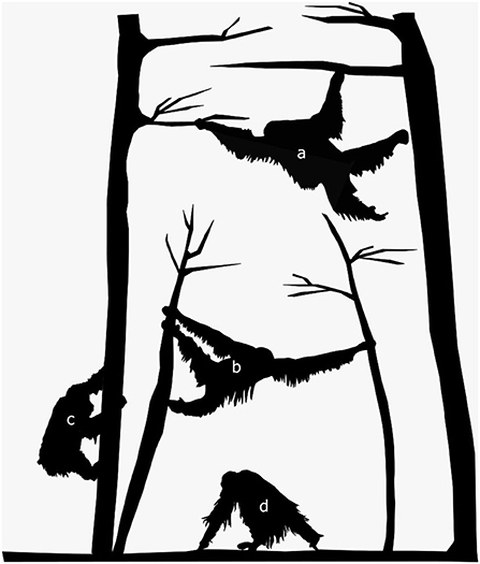23.09.2022
Agent-based model describing the arboreal movement of primates

Simulated orangutan locomotion types: brachiation (a), sway (b), tree climbing (c) and terrestrial walk (d)
In their newest publication in Frontiers in Ecology and Evolution, Kirana Widyastuti and colleagues introduce BORNEO (arBOReal aNimal movEment mOdel), the first agent-based model describing the arboreal movement of primates that can serve as a tool to investigate the direct impact of forest changes and disturbances on the behavior of species such as orangutans. The model simulates orangutans performing activities with a motivation to balance energy intake and expenditure through locomotion. They use different locomotion types, depending on the connectivity of trees. Due to forest disturbances, orangutans may adapt to employ more terrestrial, as opposed to arboreal, movements potentially prolonging the search for fruiting and nesting trees. This can impact activity patterns, available energy budget and finally the fitness of orangutans. By a comparison to observed behavioral patterns of orangutans, the model could be calibrated and confirmed previous studies indicating that orangutans in the disturbed forest are more likely to experience deficit energy balance. In addition, the modelling work suggests a critical threshold of forest disturbance that affects activity and energy levels in a way that poses a potential threat to the orangutan population.
The publication is freely available and can be accessed via the link below:
Widyastuti, K., Reuillon, R., Chapron, P., Abdussalam, W., Nasir, D., Harrison, M.E., Morrogh-Bernard, H., Imron, M.A. and Berger, U. (2022) Assessing the impact of forest structure disturbances on the arboreal movement and energetics of orangutans—An agent-based modeling approach. Front. Ecol. Evol. 10:983337.
